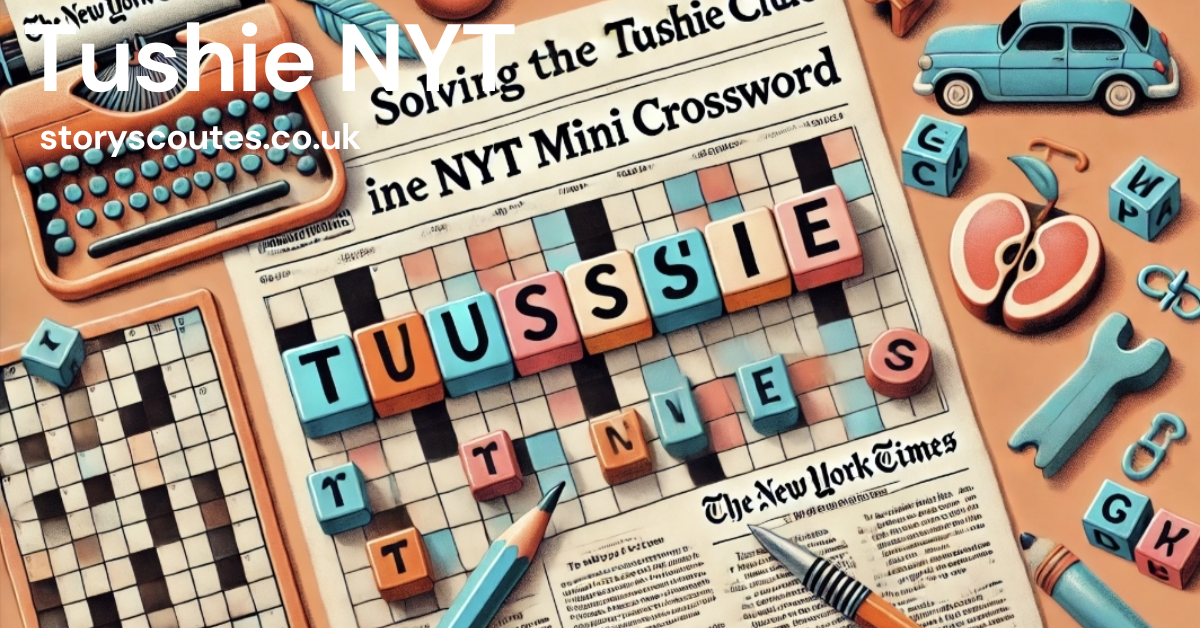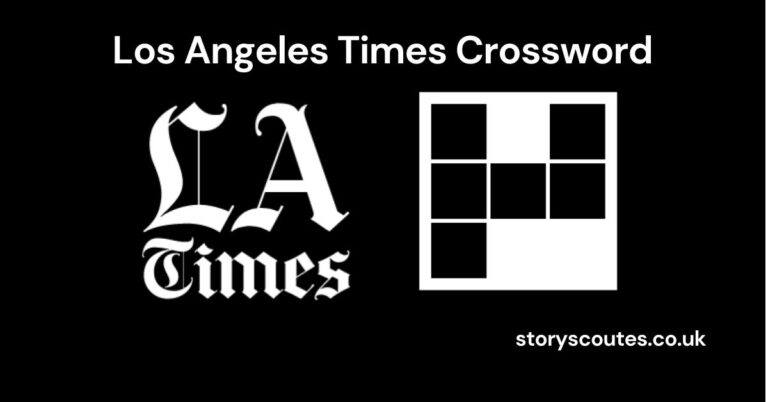Tushie NYT – A Comprehensive Guide to the Cheeky Crossword Clue
Have you ever found yourself stumped by a certain crossword clue in the New York Times puzzle? If you’ve come across the word “tushie” and scratched your head, you’re not alone. This playful term has become a recurring favorite among crossword creators, often leaving solvers both amused and confused. In this comprehensive article, we’ll dive deep into the world of “tushie NYT” – exploring its meaning, usage, and why it’s become such a popular crossword clue.
What is a Tushie?
Before we delve into the crossword connections, let’s start with the basics. “Tushie” is a cute, informal word for buttocks or rear end. It’s often used when speaking to or about children, or in lighthearted, family-friendly contexts. The term has its roots in Yiddish, where “tuchus” means backside.
Tushie in the New York Times Crossword
The New York Times crossword puzzle is renowned for its clever wordplay and diverse vocabulary. “Tushie” has become a favored clue among puzzle creators for several reasons:
1. Playful language: It adds a touch of whimsy to the often serious world of crosswords.
2. Short length: At just six letters, it fits neatly into many puzzle grids.
3. Familiar yet unexpected: Many solvers know the word but might not immediately think of it in a crossword context.
Common Clues for Tushie
When you encounter “tushie” as an answer in the NYT crossword, the clues can vary. Here are some examples:
– “Derrière, cutely”
– “Bottom line?”
– “Rear in the rear?”
– “Backside, playfully”
– “Seat, sweetly”
These clues often rely on wordplay or euphemisms to hint at the answer without being too direct.
The History of Tushie NYT Crosswords
While it’s difficult to pinpoint exactly when “tushie” first appeared in the NYT crossword, it has become increasingly common over the past few decades. This trend reflects broader changes in language and society, as more informal and diverse vocabulary finds its way into mainstream puzzles.
Why Tushie Tickles Puzzle Solvers
The inclusion of words like “tushie” in crosswords serves multiple purposes:
1. Accessibility: It makes puzzles more approachable for a wider audience, including younger solvers.
2. Humor: A touch of levity can make solving more enjoyable.
3. Cultural reflection: It showcases the evolution of language and what’s considered acceptable in mainstream media.
Tushie Beyond the Crossword
While “tushie” may be best known to many through its crossword appearances, it’s worth noting its usage in broader contexts:
Children’s Literature: Many children’s books use “tushie” as a gentle way to refer to this body part.
Everyday Speech: Some adults use it as a cutesy alternative to more formal terms.
Pop Culture: The word occasionally pops up in family-friendly TV shows and movies.
Alternatives to Tushie in Crosswords
Crossword creators have a wealth of options when it comes to cluing words related to the posterior. Some alternatives you might encounter include:
– Bum
– Fanny (more common in British English)
– Rear
– Bottom
– Backside
Each of these carries its own connotations and level of formality, allowing puzzle makers to adjust the tone of their clues as needed.
The Art of Crossword Clue Creation
The inclusion of words like “tushie” highlights the creativity required in crafting engaging crossword puzzles. Clue writers must balance:
1. Difficulty level
2. Wordplay and humor
3. Cultural relevance
4. Solver expectations
This delicate balance is what makes the New York Times crossword a daily challenge for millions of enthusiasts.
Tushie in Different Puzzle Types
While we’ve focused on the NYT crossword, “tushie” can appear in various puzzle formats:
– Word searches
– Cryptic crosswords
– Acrostics
– Anagrams
Each puzzle type presents the word in a unique way, challenging solvers to think creatively.
The Educational Value of Unconventional Crossword Words
Encountering words like “tushie” in crosswords can have educational benefits:
1. Vocabulary expansion
2. Cultural awareness
3. Linguistic flexibility
4. Critical thinking skills
By introducing solvers to diverse vocabulary, crosswords contribute to language learning and cognitive development.
Tushie in Different Languages
While “tushie” has Yiddish origins, many languages have their own playful terms for this body part. For example:
– French: “Popotin”
– Spanish: “Pompis”
– German: “Popo”
This linguistic diversity showcases how different cultures approach naming body parts in child-friendly ways.
The Future of Tushie in Crosswords
As language evolves, so too do crossword puzzles. We can expect to see:
1. Continued use of playful terms like “tushie”
2. Introduction of new, culturally relevant vocabulary
3. Increasing diversity in clue styles and references
The NYT crossword will likely continue to balance tradition with innovation, keeping solvers on their toes.
Tips for Solving Tushie-Related Clues
If you’re stuck on a clue that might lead to “tushie,” consider these tips:
1. Look for playful or childish language in the clue
2. Consider euphemisms for body parts
3. Think about words that might be considered cute or silly
4. Remember that crossword creators often use misdirection
Tushie in Popular Culture
Beyond crosswords, “tushie” has made its mark in various areas of popular culture:
– Children’s TV shows often use the term to maintain family-friendly content
– Some comedians incorporate it into their routines for a touch of innocent humor
– It occasionally appears in song lyrics, especially in music aimed at younger audiences
This widespread usage contributes to its recognition factor in crosswords.
The Psychology of Word Choice in Puzzles
The inclusion of words like “tushie” in crosswords can have psychological effects on solvers:
1. Emotional response: It might evoke nostalgia or amusement
2. Cognitive engagement: Unexpected words can increase focus and problem-solving efforts
3. Social connection: Shared laughter over such clues can bond puzzle enthusiasts
Understanding these effects can enhance the solving experience and appreciation for puzzle craftsmanship.
Tushie and Language Evolution
The prominence of “tushie” in crosswords reflects broader trends in language evolution:
1. Informalization of language
2. Increased acceptance of diverse vocabulary sources
3. Blending of different linguistic traditions
Crosswords serve as a barometer for these changes, adapting to and reflecting current language use.
Crossword Communities and Tushie Discussions
Online forums and social media groups dedicated to crossword solving often feature lively discussions about clues like “tushie”:
1. Sharing solving strategies
2. Debating the appropriateness of certain terms
3. Comparing different publications’ approaches to similar clues
These communities contribute to the ongoing evolution of crossword culture.
The Role of Editors in Crossword Content
Crossword editors, like the renowned Will Shortz at the New York Times, play a crucial role in determining which words and clues make it into the puzzle:
1. Balancing difficulty levels
2. Ensuring appropriateness for the audience
3. Maintaining puzzle quality and consistency
Their decisions shape the solver experience and influence broader crossword trends.
Tushie in Crossword Tournaments
Competitive crossword solving events sometimes feature clues related to “tushie,” adding an element of levity to high-pressure situations:
1. Testing solvers’ ability to quickly process playful language
2. Providing moments of comic relief
3. Challenging expectations about “serious” competition
These tournaments showcase the diverse skills required for crossword mastery.
Educational Applications of Crossword Vocabulary
Teachers and parents can use crossword clues like “tushie” as educational tools:
1. Discussing etymology and word origins
2. Exploring different registers of language
3. Encouraging creative thinking and wordplay
This approach can make language learning more engaging and memorable.
The Global Appeal of NYT Crosswords
The New York Times crossword’s international popularity means that solvers worldwide encounter terms like “tushie”:
1. Introducing non-native English speakers to colloquial terms
2. Sparking curiosity about American English usage
3. Creating a shared cultural touchpoint for puzzle enthusiasts globally
This global reach amplifies the impact of each word choice in the puzzle.
Tushie and Gender in Crosswords
The use of terms like “tushie” raises questions about gender representation in crosswords:
1. Balancing masculine, feminine, and gender-neutral terms
2. Avoiding stereotypes while maintaining puzzle accessibility
3. Reflecting changing societal norms through word choice
Crossword creators and editors must navigate these considerations carefully.
The Future of Language in Crosswords
As we look ahead, we can anticipate further evolution in crossword vocabulary:
1. Incorporation of internet slang and memes
2. Increased representation of global English varieties
3. Continued balance between traditional and modern language
Words like “tushie” may be joined by new terms that reflect our changing linguistic landscape.
FAQs about Tushie NYT Crosswords
How often does “tushie” appear in NYT crosswords?
While frequency varies, it appears several times a year on average.
Is “tushie” considered a difficult crossword answer?
It’s generally considered medium difficulty due to its playful nature and indirect cluing.
Are there age restrictions on NYT crosswords containing words like “tushie”?
No, the NYT crossword is designed for general audiences and avoids overtly adult content.
Can I use “tushie” in Scrabble or other word games?
Yes, “tushie” is accepted in many word games, including Scrabble.
Are there regional differences in the use of “tushie” in crosswords?
While more common in American puzzles, it occasionally appears in crosswords worldwide.
How do I get better at solving clues for words like “tushie”?
Practice, familiarize yourself with common crossword conventions, and expand your vocabulary of colloquial terms.
Who decides which words appear in NYT crosswords?
The puzzle constructor proposes words and clues, but the final decision rests with the crossword editor.
Is “tushie” considered slang?
It’s more accurately described as informal or colloquial language rather than slang.
Are there any controversies surrounding the use of “tushie” in crosswords?
While generally accepted, some solvers prefer more formal language in their puzzles.
Can I submit a puzzle to NYT using “tushie” as an answer?
Yes, but acceptance depends on the overall quality of the puzzle and the cleverness of the clue.






